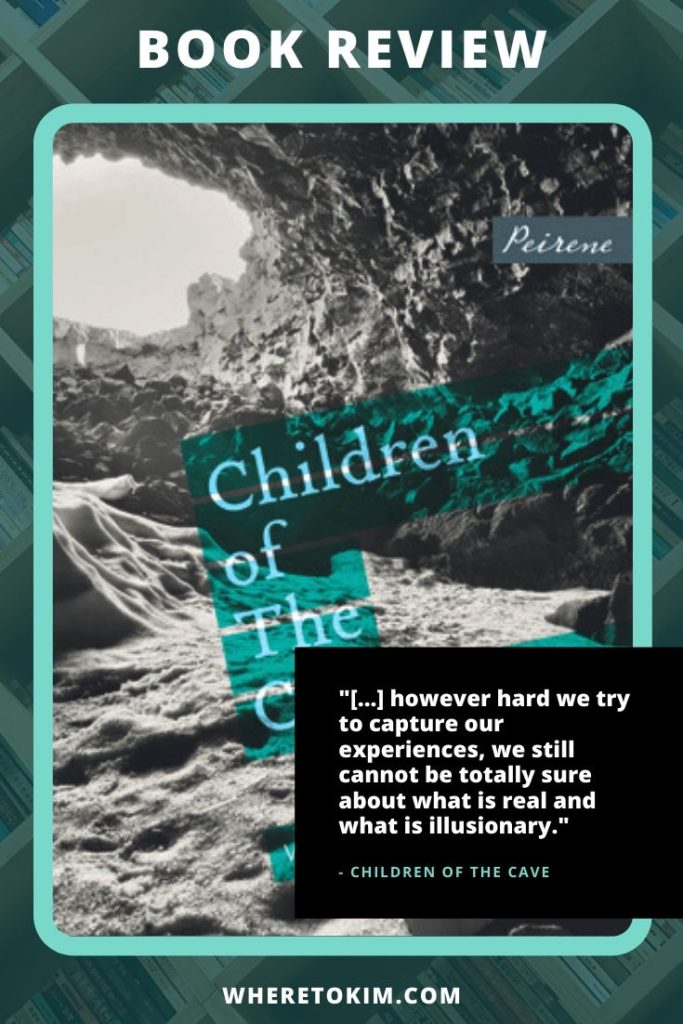Children of the Cave by Virve Sammalkorpi gets better with every page you read. This book wasn’t exciting at all and at the same time it was. Recommended!
Location: mostly set in Russia
Children of the Cave Synopsis
‘It’s dangerous to be different where everyone else is alike. Have you noticed?’
1819. Iax Agolasky, a young assistant to a notable French explorer, sets off on a journey to the Russian wilderness. They soon discover a group of creatures living in a cave: children with animal traits. But are they animals, or are they human? Faced with questions of faith, science and the fundamentals of truth, tensions rise in the camp. Soon the children’s safety becomes threatened and Agolasky needs to act.
Book review
“Every discovery needs numerous dreamers and adventurers behind it: to experiment, to err and to show the way to others who may yet prove wiser and more fortunate.”
Powerful quotes and the right wording of sentences leave a very strong impression on me. I’m not speaking about general wisdoms, but rather the right words at the right time. That is what I often look for in books I read and what leaves a lasting memory. Some quotes don’t mean anything if you haven’t read the book, but others work independent of the source.
At first the book isn’t very eloquent. The notes are short, professional and to the point. Very much like the journal or academic work it is supposed to be. At some point though you start to ignore the form of the narrative and the story sucks you in. Iax becomes more of a real person and a very passionate one at that. You feel his happiness and sorrow and share his fear. He doubts himself, but you as the reader don’t doubt him. Not the goodness in him. Yet even though the others of his party aren’t depicted in a very positive way, they are not all as unhuman as Iax describes them.
In time, the children and the men “grow” closer, with the kids’ descriptions becoming more human and the men becoming more animal. So what is human nature? If you go back to the basics and leave society behind, will you become like that? Or are you born like it, with the physical features merely confirming the facts?
The last page of the author’s postscript is the most intense of them all. You start to feel sorry for the main character. Good job, Iax, you made a great effort, it was all for nothing. We’ll never know what is real and what is an illusion. But you seem like a great guy, so let’s meet somewhere over there, soon, ok?
Children of the Cave gets better with every page you read. The beginning is not very impressive, nor is the story very exciting. But Iax is, and he doesn’t disappoint. He might be an illusion of my mind, by proxy via the author of the book, but he is a person of flesh and blood who takes you on a journey questioning humanity.
After rereading the previous paragraph: no this book wasn’t exciting at all and at the same time it was. An excellent execution, and a recommendation for sure.
I started my review with a quote from the preface and I’d like to finish with a quote from the last few pages. “During our joint expedition, I understood that, however hard we try to capture our experiences, we still cannot be totally sure about what is real and what is illusionary.” Iax went from an optimistic dreamer to someone doubting himself. He seems to think that when you die it is like your sorrows and joys never existed and like you were an illusion of yourself. Iax, I don’t agree with you on that. You did all you could and I am sure you left an impression on some of the people who knew you.
Questions for reflection
- If something is not real or just an illusion, does that take away from the importance of the feelings you experience because of it?
- Do the stories you experience in your head (for example when daydreaming) not count or can they also help you grow as a person? Because in a parallel life you have experienced it all…
Translated from Finnish by Emily Jeremiah and Fleur Jeremiah.
Interested?
You can get your copy of Children of the Cave from Amazon.







